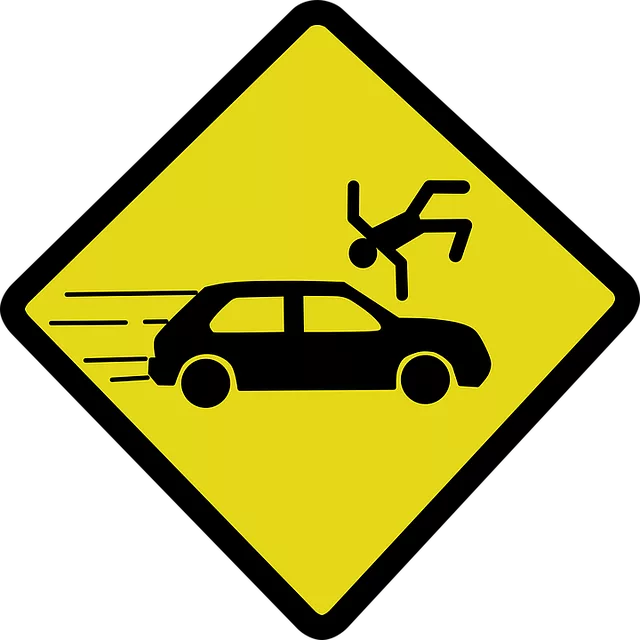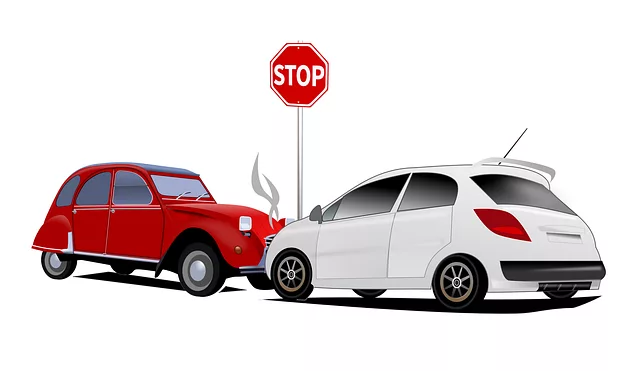Taxi Cab Collision Lawyer: Navigating Liability & Legal Recourse

In cases of bus company liability, especially taxi cab collisions, specialized Taxi Cab Collision La…….
In the dynamic world of transportation, ensuring safety and accountability is paramount, especially in the wake of potential collisions. This is where a Taxi Cab Collision Lawyer steps into the spotlight, serving as a pivotal resource for victims and a critical component in shaping safer mobility practices. This comprehensive article aims to dissect the multifaceted role of these legal professionals, exploring their expertise, impact, and the global landscape they navigate. By delving into various facets, from international trends to technological innovations, we will uncover the intricacies of Taxi Cab Collision Law and its profound effects on society.
A Taxi Cab Collision Lawyer, also known as a transport accident attorney or personal injury specialist in the context of taxi collisions, is a legal expert specializing in representing individuals who have been involved in taxi-related accidents. Their primary focus lies in navigating the complexities of personal injury law to ensure that victims receive fair compensation and justice for their injuries, property damage, or loss of life.
The core responsibilities of these lawyers encompass:
Case Assessment: Investigating the circumstances surrounding the collision, gathering evidence, and analyzing liability. They determine whether negligence on the part of the taxi driver, the transportation company, or other entities contributed to the accident.
Legal Strategy Development: Crafting a robust legal strategy tailored to each case’s unique facts. This includes identifying applicable laws, regulations, and precedents that can strengthen the client’s position.
Negotiation and Mediation: Engaging with insurance companies, transportation firms, and other parties involved in the accident to negotiate settlements or mediate disputes out of court. Their goal is to secure favorable outcomes for their clients without proceeding to litigation if possible.
Litigation Support: Should negotiations fail or if the case warrants legal action, these lawyers file lawsuits on behalf of their clients. They present evidence, examine witnesses, and argue before courts to advocate for their client’s rights and interests.
The significance of Taxi Cab Collision Lawyers lies in several key areas:
Safety Advocacy: By pursuing legal action, they can drive improvements in taxi industry standards, safety protocols, and driver training, ultimately enhancing road safety for all users.
Victim Representation: They provide much-needed support to individuals who may be physically, emotionally, or financially vulnerable after a collision, helping them navigate the legal system effectively.
Accountability and Justice: These lawyers ensure that negligence does not go unpunished and that those responsible are held accountable for their actions, fostering a culture of responsibility within the transportation industry.
The influence of Taxi Cab Collision Lawyers is felt across the globe, with each region presenting unique legal and cultural landscapes that shape their practices. Here’s an overview of some key international trends:
| Region | Legal Frameworks | Noteworthy Trends | Challenges |
|---|---|---|---|
| North America | Strict liability laws for taxi companies, requiring them to maintain safe vehicles and employ competent drivers. Personal Injury Protection (PIP) insurance is common. | Increased use of advanced driver-assistance systems (ADAS) in taxis to prevent collisions. Rising demand for ride-sharing apps has led to new regulations governing app-based transportation networks. | Complex liability issues arising from the involvement of multiple entities, such as ride-sharing companies and drivers. |
| Europe | Diverse legal systems with varying degrees of strict liability. The European Union’s (EU) General Data Protection Regulation (GDPR) impacts data collection practices for ride-sharing apps. | Many EU countries are adopting electric vehicle (EV) incentives to promote sustainable taxi fleets. Stricter driver licensing and background check regulations are in place across the continent. | Cross-border disputes regarding jurisdiction and liability, especially with the rise of international ride-sharing platforms. |
| Asia Pacific | Rapidly evolving legal environments due to rapid urbanization and technological advancements. Many countries have adopted strict safety standards for transportation networks. | The region witnesses a surge in smart city initiatives, integrating advanced traffic management systems and electric taxis. Ride-hailing apps dominate the market, leading to new regulatory frameworks. | Inadequate insurance coverage and underreporting of accidents due to cultural barriers and varying legal awareness. |
| Latin America | Consistent emphasis on driver liability and vehicle safety. Many countries have implemented strict regulations for ride-sharing platforms. | Increasing adoption of electric taxis in major cities to reduce carbon emissions. The region sees a rise in bike-sharing and micro-mobility apps, leading to new legal considerations. | Limited access to justice in rural areas hampers accident victims’ ability to seek compensation. |
| Middle East | Conservative legal interpretations often prioritize fault-based liability. Strict regulations for taxi operations and driver licensing are common. | The region is witnessing the rise of autonomous vehicles, raising new legal questions regarding liability and insurance. | Insufficient data privacy protections due to a lack of comprehensive data protection laws in some countries. |
These trends highlight the dynamic nature of Taxi Cab Collision Law, which must adapt to technological advancements, changing transportation models, and evolving societal expectations.
Technology plays a pivotal role in shaping the future of Taxi Cab Collision Law, offering both challenges and opportunities for these legal professionals:
Data Analysis: Advanced data analytics can help lawyers identify patterns in accidents, assess risk factors, and develop stronger legal arguments. For instance, analyzing crash data may reveal common hazards associated with certain routes or weather conditions.
Autonomous Vehicles: The rise of autonomous taxis raises complex legal questions regarding liability, insurance, and driver employment. Lawyers must stay abreast of these developments to guide their clients effectively.
Ride-Sharing Apps: These platforms have reshaped the transportation industry, leading to new legal challenges related to app-based company liability, driver classification (as employees or independent contractors), and data privacy.
Telematics and GPS Data: Access to vehicle tracking data can provide valuable insights into a collision’s circumstances, helping lawyers build stronger cases. However, ensuring data privacy and obtaining court orders for such access are essential considerations.
To excel in their field, Taxi Cab Collision Lawyers employ various strategies and best practices:
Stay Updated on Legal Developments: Given the dynamic nature of transportation law, continuous legal education is vital to keep up with changing regulations, case law, and industry trends.
Build a Strong Network: Collaborating with medical experts, safety researchers, and other professionals enhances their ability to investigate accidents thoroughly and present compelling cases.
Utilize Technology: Embracing digital tools for case management, document storage, and communication improves efficiency and client service. Legal tech solutions can also aid in data analysis and evidence presentation.
Foster Client Communication: Effective communication with clients is essential to manage expectations, obtain crucial information, and build trust. Regular updates on case progress help maintain client engagement.
Negotiate Strategically: Skilled negotiation is key to resolving cases efficiently and cost-effectively for both clients and lawyers. Understanding the financial implications of different settlement amounts is crucial.
Taxi Cab Collision Lawyers face numerous challenges and ethical dilemmas in their practice:
Liability Issues: Determining liability, especially in complex cases involving multiple parties, can be intricate. Lawyers must carefully analyze evidence to attribute responsibility accurately.
Insurance Disputes: Negotiating with insurance companies can be challenging, as insurers often aim to minimize compensation. Lawyers must balance their clients’ interests with the need for reasonable settlements.
Cultural and Language Barriers: In multicultural societies, lawyers may encounter language and cultural differences that impact client communication and evidence collection.
Ethical Responsibilities: Maintaining confidentiality, avoiding conflicts of interest, and ensuring informed consent from clients are essential ethical considerations. Lawyers must also be mindful of their role in promoting public safety and social justice.
Taxi Cab Collision Lawyers stand at the intersection of law and mobility, playing a critical role in shaping safer transportation systems worldwide. Their expertise not only ensures that victims receive justice but also drives positive change through industry reforms. As technology advances and transportation models evolve, these legal professionals must adapt, stay informed, and collaborate to navigate the complexities of their field effectively.
By understanding the global impact, embracing technological innovations, and addressing challenges head-on, Taxi Cab Collision Lawyers will continue to be instrumental in creating a more secure and just mobility ecosystem for all.

In cases of bus company liability, especially taxi cab collisions, specialized Taxi Cab Collision La…….

Birth injuries caused by medical negligence or accidents can have severe consequences. In New York C…….

Navigating taxi cab insurance claims after an accident is complex, but a Taxi Cab Collision Lawyer p…….

Taxi cab collisions can cause severe, often overlooked soft tissue injuries leading to chronic pain…….

In Queens, a specialized Taxi Cab Collision Lawyer is crucial for handling complex traffic laws and…….

Alcohol-related motorcycle accidents in Brooklyn, New York, pose severe safety risks, leading to inj…….

Slip and fall accidents on wet floors in Queens often result in severe injuries. Taxi Cab Collision…….

Trucking accidents in The Bronx require specialized legal expertise due to complex state laws and po…….

Bus accidents can result in severe injuries and legal liability for both drivers and companies, espe…….

After a taxi cab collision in the Bronx, a Taxi Cab Collision Lawyer is crucial for understanding an…….